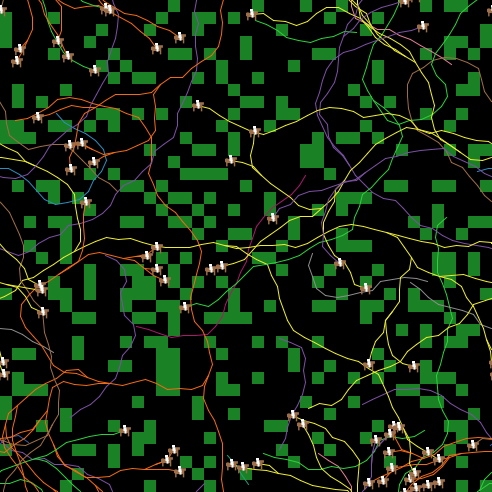Spring 2021 Update & Reflection
Spring 2021 Update & Reflection
By Mark Ciotola
Date: April 11, 2021
This is a belated update! On a personal note, I spent much of 2019 working on a university spinoff venture related to a new e-publishing platform, and then most of 2020 catching up with teaching and other employment to recover from that start-up. Covid and the civic events of 2020 also gave me pause to listen and reflect to the pain many are feeling.
Meanwhile, the older HistoryQuant and History Dynamics sites have been consolidated into the H1st0ry.org site. Yes, that is with a “1” and a “0”.
Like the earlier sites, H1st0ry.com concerns the development of a unified, quantitative science of human history. There have been some extremely critical statements about the creation and utilization of science and mathematics. However, the invention and development of math and science have been neither monocultural nor mono-racial. Peoples and cultures from across the globe and throughout the course of history have made original discoveries and breakthroughs. The ancient great pyramids and structures of Asia, Africa and the Americas were not made through physical effort alone but from equally amazing edifices of math and science. Although math and science have been used at times by European cultures to facilitate oppression, neither are exclusively European or oppressive. They are the shared heritage and domain of all humans.
The relationship between history studies and sustainability is likewise complicated. History expresses stories of sustainability over centuries and millennia. A truly sustainable human society arguably requires a fundamental understanding of historical processes. Unfortunately, the term sustainability has been used to advocate preservation of resources in often inequitable ways. Historical research should not turn a blind eye to impacts on inequities in sustainability advocacy.
So what progress has been by this endeavor over the past few years?
- Machine learning is being applied to study and compare multiple dynasties. (Results will be presented at the 2021 WHA Annual Meeting).
- HIST 305, a digital history course (including quantitative and physical components) was created in Autumn 2019 and taught at San Francisco State University. Many of the materials for that course are available at Digital History.
- Further educational materials have been placed at Digital, Quantitative and Physical History.
- Research has been conducted into the thermodynamic roots of economics.
- Analytical, spatial, and other digital techniques have been used to study the migration of nomads across central Asia and Eastern. Whimsical, exploratory simulation (as shown in the figure below), but more specific, realistic simulations are being conducted as well.

Simulation of nomadic riders across a grassy region